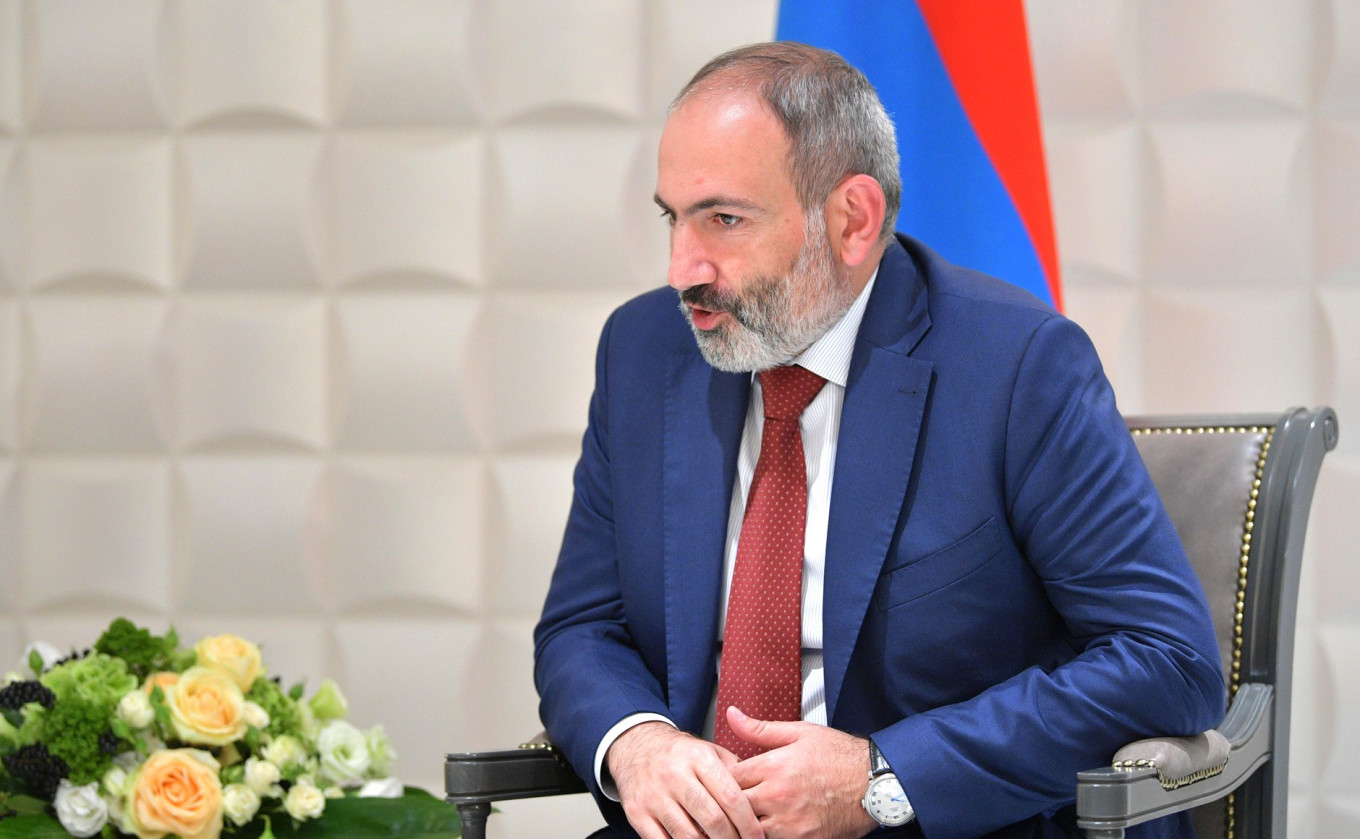
Russian President Vladimir Putin has urged fellow members of a post-Soviet military bloc to support Armenia’s prime minister as he grapples with domestic pressure over his agreement to a Moscow-brokered peace deal with Azerbaijan.
Nikol Pashinyan has faced a wave of outrage at home since the Nov. 9 peace deal ended more than six weeks of bitter fighting over the disputed region of Nagorno-Karabakh, with Armenians calling him a “traitor” and demanding his resignation. Under the deal, Armenia ceded three districts surrounding the ethnic Armenian enclave in addition to four others that Azerbaijani forces reclaimed during the fighting.
Speaking at a virtual meeting of the Collective Security Treaty Organization on Wednesday, Putin called Pashinyan’s moves to end the conflict “painful” but “necessary,” hailing the prime minister’s “courage.”
“Our task now is to support both the prime minister and his team in order to ensure peace,” Interfax quoted Putin as saying.
The CSTO is a Russia-led military alliance of former Soviet countries that includes Armenia, Belarus, Kazakhstan, Kyrgyzstan and Tajikistan. Azerbaijan, which also shares post-Soviet ties to Russia, is not a CSTO member and has received Turkey’s backing in the conflict over Nagorno-Karabakh.
During the CSTO meeting Pashinyan said that Russian peacekeepers remain the primary guarantor of peace and security in Nagorno-Karabakh, Interfax reported. Since the Nov. 9 peace deal, a force of nearly 2,000 Russian peacekeepers has been deployed to the region for a five-year period that can be renewed.
The Armenian authorities last month said they had thwarted a plot to assassinate the prime minister.
Pashinyan, whose wife and son were at the front during the conflict, has said the peace deal was Armenia’s only option and that it ensured Karabakh’s survival.
Also on Wednesday, Kremlin spokesman Dmitry Peskov said that Russia welcomes, but doesn’t insist, on making Russian the second official language in Karabakh and is ready to help further its spread, according to the state-run RIA Novosti news agency. Peskov added that it’s up to Armenia and Azerbaijan to determine any official second languages in their own countries.
AFP contributed reporting.
